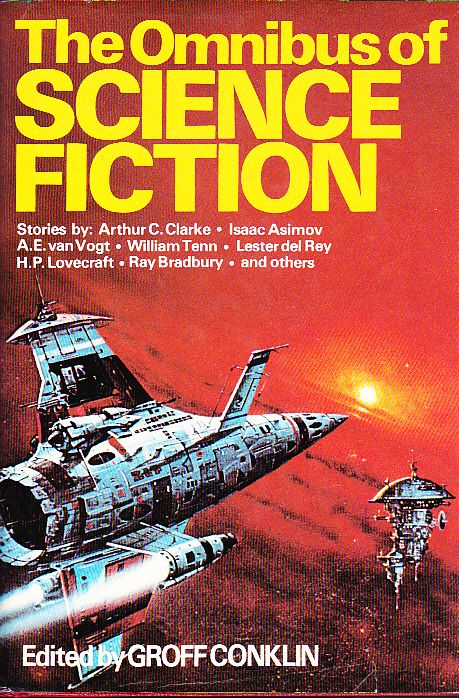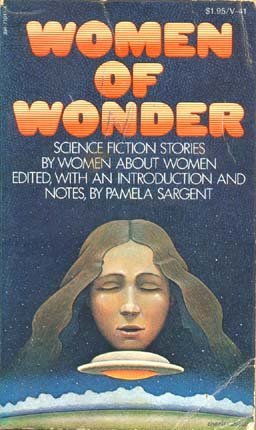Finished off the anthology last night... and enjoyed it immensely. Following the Koch radio script was the first sf piece ever published by Mildred Clingerman, "Minister Without Portfolio", which had a very different sort of approach to the first contact idea... handled with a good deal of humor and satirical intent, yet never genuinely belittling her character. Nifty piece of writing, and it is very interesting to see how she began.
Then came Edward Grendon's "Crisis" which, though depending on the twist in the tail for its full effect, managed to avoid being an O. Henry sort of experience, and at times is reminiscent of some of Cliff Simak's work. Again, not the very top, but quite a good little piece.
A bit later came William Tenn's "'Will You Walk a Little Faster?'" -- one which has all the standard things one expects from him, including that bitingly sardonic humor which, at bottom, has a very serious -- and rather nasty -- point. Put this one in the same class as his "Bernie the Faust" as far as his view of humanity is concerned, and with much the same light-hearted tone... which makes the nastiness all the nastier in the end. A fine story, all told.
The next-to-last tale was "Pictures Don't Lie", by Katherine MacLean -- again, depending on a twist in the ending, yet it works very well. One has a sinking feeling as you approach the final pages, a faint intimation of what the problem really is, but that doesn't prevent the bitter irony of the situation from working one little bit. Not a classic, but rather good, in its way.
The last piece was by Anthony Boucher, and was originally intended for a paper by the Baker Street Irregulars, and brings together Sherlock Holmes, Shakespeare, and alien archaeologists who come here long after we are gone. A wry piece of fake scholarship, it is full of joke, puns, and more sf cliches than you can shake a stick at... all in the space of four pages.
But the real gem of this collection has to be Edgar Pangborn's "Angel's Egg", which came after "Crisis". I said that Conklin didn't necessarily often include a genuine piece of true literary art, but if this one doesn't fit that description, it doesn't miss by much. It has been at least three decades since I last read this tale, and it still carries as much punch as it ever did. I would put it right up there with his classic novel, A Mirror for Observers -- which I recommend to anyone wishing to see the true classics of the genre, and how sf can transcend genre to become Literature. A funny, wistful, sad, outrageous, charming, and deeply moving piece, "Angel's Egg" can take its place between a rather small number of sf tales which completely ignore the sf/f boundaries, yet manage to be as truly sf as anything out there, and which still pluck at one's heartstrings with a very certain hand.* And again, this was Pangborn's first published sf story.
While not on the level of, say, the SF Hall of Fame anthologies, or Boucher's Treasury of Great Science Fiction, this is certainly one of the better anthologies I've read in quite a long time. Pity that it has been out of print for so long; it really deserves to be remembered.
*The others would include, but not be limited to, Lester del Rey's "Day is Done", Isaac Asimov's "Eyes Do More Than See" and "The Ugly Little Boy", Daniel Keyes' "Flowers for Algernon", and some of the best of Harlan Ellison.






